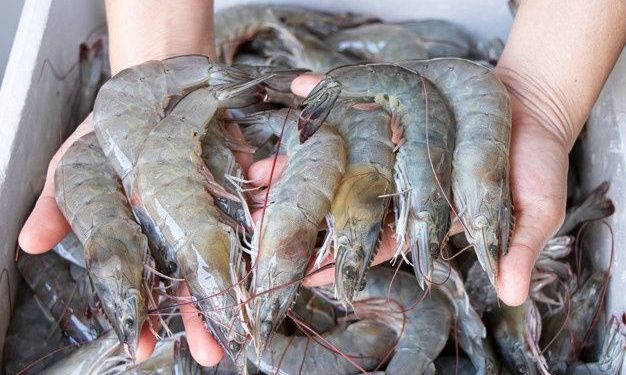Jakarta, Indonesia Sentinel — Shrimp prices across Indonesia have plummeted following reports of radioactive contamination in exports, sparking alarm among farmers and disrupting domestic supply chains.
The U.S. recently reported that shrimp shipped from Indonesia contained traces of radioactive material, allegedly linked to a processing plant operated by PT Bahari Makmur Sejati (BMS Foods) in Serang, Banten province.
The allegation has triggered a steep drop in local shrimp prices and weakened market absorption. “Prices in some regions have fallen by as much as 30%. In directly affected areas, demand has collapsed, forcing farmers to sell cheaply to local buyers,” said Andi Tamsil, chairman of Shrimp Club Indonesia (SCI), on Sunday, September 7, as reported by Kompas.
He added that local markets have also been rattled, with consumers reluctant to buy shrimp amid the controversy.
However, Andi stressed that the issue was isolated and unrelated to shrimp farming practices. “Indonesian shrimp remains safe to consume,” he said.
Indonesia’s Nuclear Energy Regulatory Agency (BAPETEN) has declared the country’s shrimp safe from radioactive exposure, but the fallout is already taking a toll.
SCI representative said supply chains from Aceh, North Sumatra, West Sumatra, and Riau have been disrupted since PT BMS suspended purchases.
“BMS accounts for around 75% of shrimp absorption in that region. When they stopped buying, agents also pulled back, leaving stockpiles to rot. Prices plunged from 85,000 rupiah to 60,000 rupiah ($5.20 to $3.70) per kilogram,” he explained.
Read Also:
SCI warned that small-scale farmers are the most vulnerable, with many unable to sell their harvest. The association urged the Indonesian government to open talks with U.S. regulators, particularly the Food and Drug Administration (FDA), to clarify the situation.
“Our people trust the FDA more than local agencies. Unless the FDA retracts its statement on cesium-137, it will be difficult to regain confidence from both domestic consumers and international buyers,” Andi said.
He criticized the lack of clear and transparent communication surrounding the case, calling on the government to release the results of its investigation quickly.
“There must be an official explanation backed by evidence. Don’t let this uncertainty drag on, because once markets are lost, they will be very hard to recover,” he warned.
Shrimp is one of Indonesia’s top non-oil and gas export commodities, and SCI said swift action is essential to safeguard foreign exchange earnings and protect the livelihoods of local farmers.
(Raidi/Agung)


























